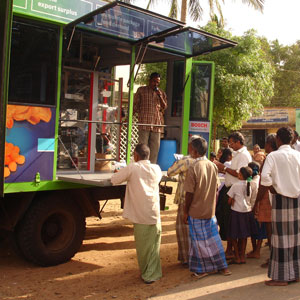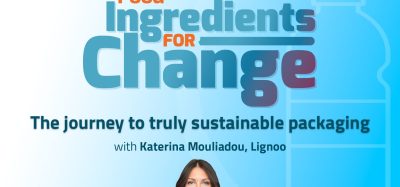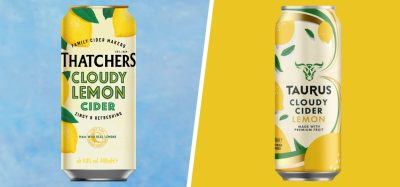Bosch takes part in initiative to save food
- Like
- Digg
- Del
- Tumblr
- VKontakte
- Buffer
- Love This
- Odnoklassniki
- Meneame
- Blogger
- Amazon
- Yahoo Mail
- Gmail
- AOL
- Newsvine
- HackerNews
- Evernote
- MySpace
- Mail.ru
- Viadeo
- Line
- Comments
- Yummly
- SMS
- Viber
- Telegram
- Subscribe
- Skype
- Facebook Messenger
- Kakao
- LiveJournal
- Yammer
- Edgar
- Fintel
- Mix
- Instapaper
- Copy Link
Posted: 17 May 2011 | Bosch Packaging Technology | No comments yet
The international “Save Food” initiative aims to tackle the fact that over a third of all food is wasted globally…
The international "Save Food" initiative aims to tackle the fact that over a third of all food is wasted globally...


Save Food: Over three years ago, Bosch Packaging Technology began to take some measures against this waste of food and resources. In India, the company used truck-mounted packaging machines, which had been specially adapted to local conditions, in order to demonstrate the benefits of packaged food to farmers, as well as to the authorities. The farmers soon realized that it made sense to package their harvest. Each year, an additional 100 machines come into operation.
The Bosch Group wants to help ensure that, in the future, less food perishes on its way to the consumer. This is why the Packaging Technology business unit is taking part in the international “Save Food” initiative, which was initiated by the United Nations’ Food and Agriculture Organization (FAO), the food and packaging industry and the Düsseldorf Trade Fair Center. At present, over a third of all food is wasted globally as it travels from the field to the plate. In emerging countries like India the amount is over three-quarters. The initiative wants to ensure more diligent handling of available foodstuffs and to look for solutions so that less food is wasted. “Only a joint effort will succeed in combating today’s massive waste of food,” said Friedbert Klefenz, president of Bosch Packaging Technology.
One reason why food decays prematurely is frequently the lack of appropriate packaging to protect the products from the weather or from pests. This means that transportation and storage is impossible without causing damage to the products. This illustrates the importance of packaging technology in our everyday lives. “Without packaging technology, there would also be much less variety on our dining tables,” Klefenz explained.
Because large amounts of harvested food are lost, particularly in poorer countries, resources like arable land, energy and water are not utilized to their maximum potential and are therefore wasted. For example, the production of one kilogram of corn requires 450 liters of water. The figure for one kilogram of rice is 3,000 liters and one kilogram of beef needs no less than 4,500 liters.
Current activities in India
As early as 2007, Bosch took action against the waste of food and resources in emerging countries. In India, truck-mounted machines, customized to meet local needs, were used to convince local farmers and authorities of the benefits of packaged food products. Each year, an additional 100 machines come into operation. Their use could be even more widespread if there was a distribution network to assure the transport of goods over longer distances. A widespread distribution of packaging machines is the goal in order to prevent on-site perishing of goods. Additionally, it is important to build distribution networks.
Conserving resources and the environment
With new developments, Bosch Packaging Technology will play its part in reducing the use of energy as well as material in the packaging of food products. This will not just lead to lower food processing costs but will also conserve resources and the environment. One example is aseptic food packaging. Using this technology means that there is no longer a need to heat goods to high temperatures inside the packaging. In turn, much less packaging material is needed and energy use is reduced by up to 70 percent compared to traditional systems. In addition, this gentle way of processing preserves a significantly higher amount of nutrients. Importantly, food packaged in this way does not require a cold chain, which would normally have to be maintained, at a high energy cost, all the way from the processing plant through transportation to the retail outlet. This type of packaging is therefore especially appropriate in emerging economies where consumers, who do not have access to a supermarket with cooling shelves, can also be supplied.
A further solution developed by Bosch is ultrasonic sealing technology, which uses less energy for the sealing of packages. Unlike heat sealing, the “cold” ultrasonic sealing method does not require pre-heated sealing jaws. Manufacturers are also free to use thinner, and therefore much cheaper, film material. Moreover, ultrasonic sealing produces narrower sealing joints, thus requiring less packaging material.
Related topics
Related organisations
Food and Agriculture Organization of the United Nations (FAO)








